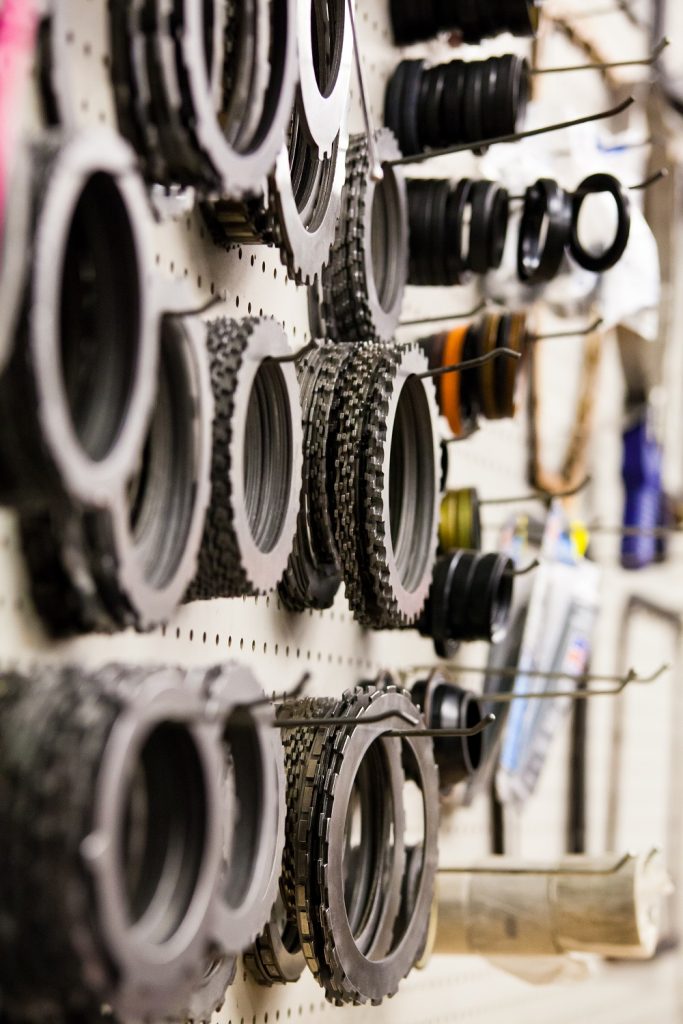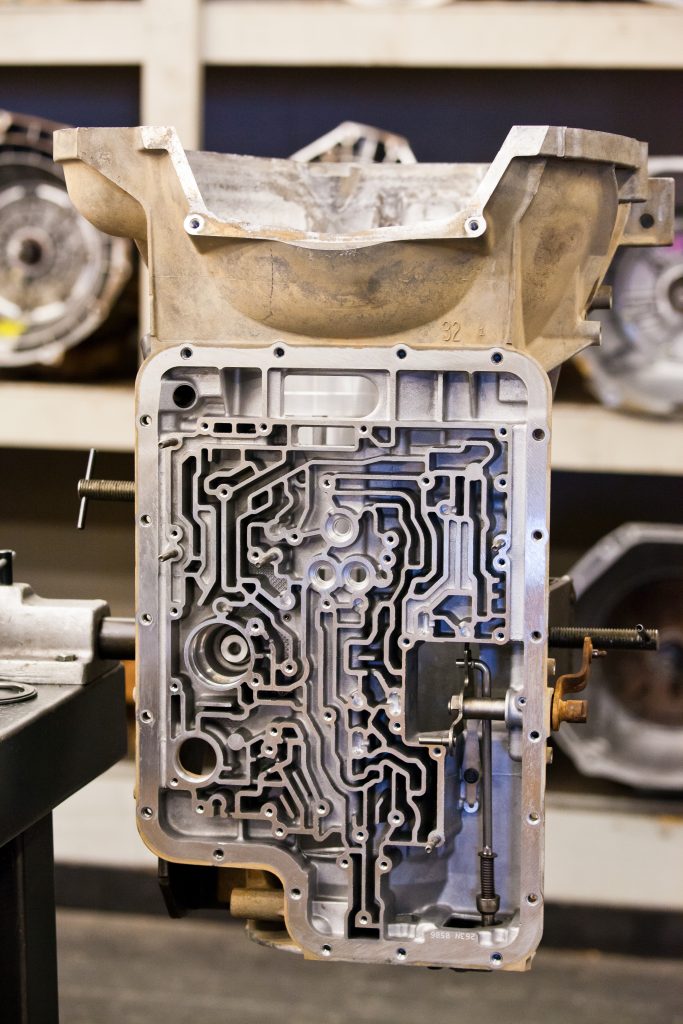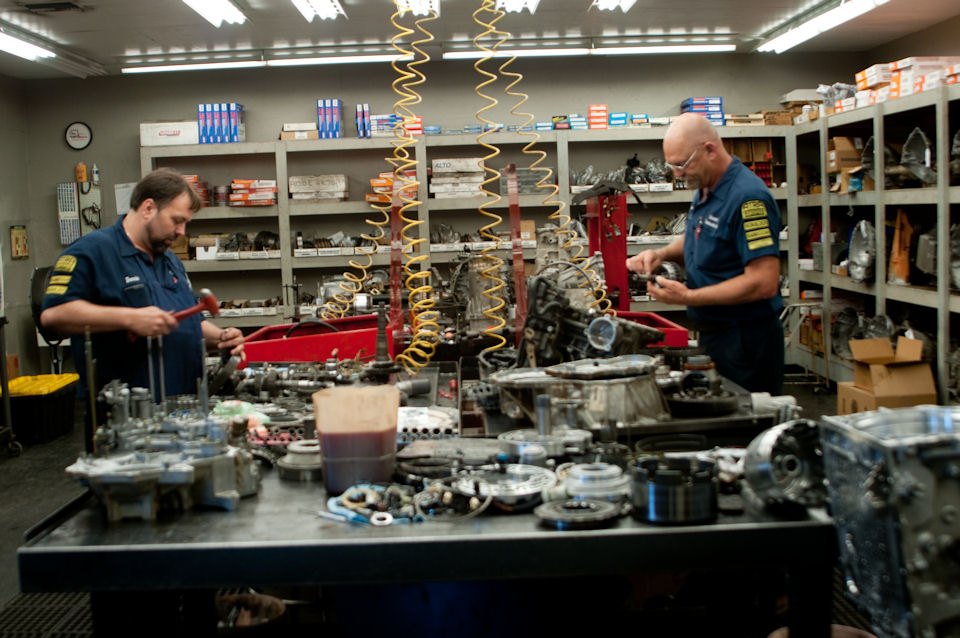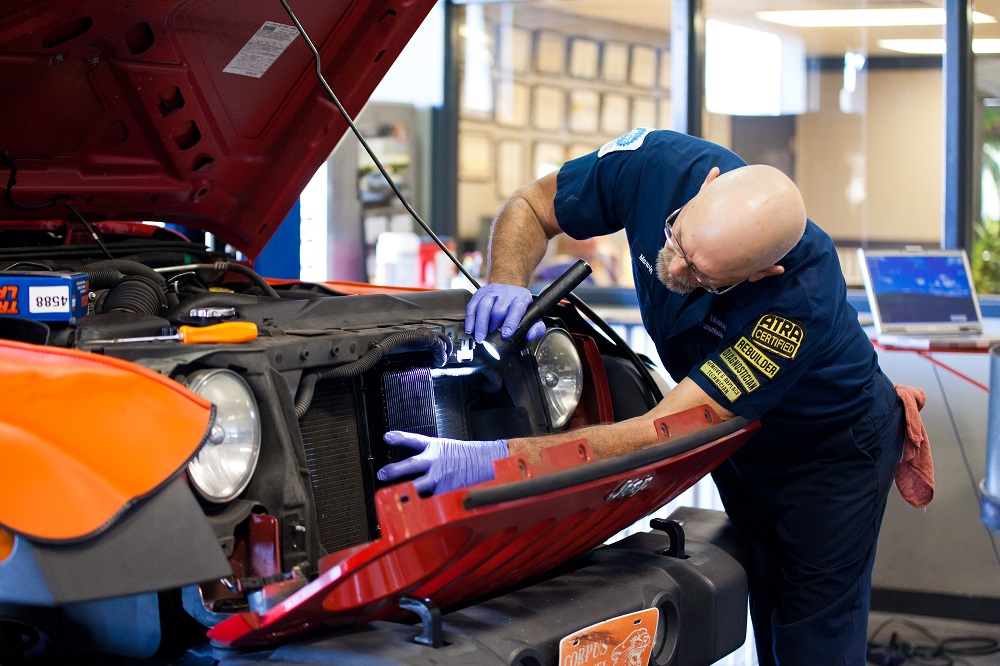Here is the Scenario — You bought the fishing boat of your dreams or you purchased a 19-foot camper or trailer that has air conditioning, stove, refrigerator, sink, oven, shower, potty, generator, wet bar. Just about every convenience known to humankind. All of this is predicated on you owning a vehicle with enough power to pull the load that you will be towing and a transmission that is up to the job. And now you have a few things to consider. Like, can you tow in overdrive, what are the signs of a bad transmission, and where do I go for trailering transmission maintenance.
It is safe to say that most vehicle owners don’t really know much about transmission maintenance or how to service and maintain them. They change their engine oil on a regular basis but seem to forget about maintenance on transmissions until there is an issue.

Laura Wilson is the co-owner of Advanced Transmissions in Spanish Fort, AL. Advanced Transmissions is a locally owned and operated 25-year-old company that does everything transmissions. That includes electrical and non-electrical diagnostics, transmission repair and rebuild, cooler installation/service and much more.
I reached out to Wilson for some advice and tips as to what vehicle owners who are trailering a boat, camping or any type of trailer need to consider and do before they get on the road.
Tip #1 – Fluid Level and Condition
“Before you tow anything you should always check the transmission fluid level and condition,” Wilson said. “If the fluid is in good condition, it should be a very translucent red and have no offensive odor (Editor’s Note: If it smells like burnt toast, there could be an issue. It should smell slightly sweet.)
According to Wilson most transmissions have dipsticks but some don’t have dipsticks at all, which means that they have to be checked from the undersides. The only way you can do that is to put them up on a rack and check at a certain temperature or revolutions per minute (RPM).
“If you do have a car with a dipstick, on most vehicles it should be checked with the engine running in park on level ground,” Wilson said. “You take it out, wipe it down and do it a couple of times just to be accurate.”
“Checking the fluid level and making sure that it is in good condition and full is the most important thing you can do before you start towing,” she said. If your fluid levels are low, you may have a leak and need to seek out a professional who knows how to fix a transmission leak.
Tip #2: Driving Gears – Never Tow in Overdrive
Wilson explained that years ago it was unclear, when pulling a trailer, what gear should you be in or if you can tow in overdrive. Some people had a circle around one of the “D”s. Other vehicles just had a “D”. Some had a “3”. All of this resulted in plenty of signs of a bad transmission.

“The manufacturers all came together and the federal government required that everything had to be similar as far as electronic components and what things say so everyone was in the same general vicinity,” Wilson said. “They put in a tow haul mode or switch and you just pushed the button and it took the vehicle out of overdrive so not to damage the transmission.”
Wilson pointed out that when you stop and turn the vehicle off it will default to the overdrive mode. It is critical that when you restart the vehicle for you to engage the tow-haul mode.
Tip #3: It’s All About Weight…Tongue and Tow
Wilson explained that the two benchmarks for safe trailering is to know what the tongue and tow weights for your vehicle are and sometimes they are not easy to find.
The tongue weight refers to the weight that a fully loaded trailer exerts downward on the hitch ball of the tow vehicle.
“A lot of times the tongue weight is stamped on the bumper right where the hitch would be. Knowing that is important because the tongue weight isn’t right for the vehicle it can cause more stress on the engine and transmission,” Wilsons said. “Plus, you need to make sure that you have the right hitch so the weight is distributed correctly.”
Tow weight (capacity) is basically how much your vehicle can safely tow. You can find out that information in your owner’s manual or on a sticker in your glove box or sometimes on the inside of the driver’s seat door. You can also use your vehicle identification number to get that information from the manufacturer or a dealer or even search online.
“There are different factors when it comes to tow weight including engine size, rear differential ratios and other things,” Wilson said.
Wilson said that towing weight is classified as “dry weight” which basically means the minimum and unloaded weight of whatever you are towing.
“If you plan on pulling a camper with a dry weight of 2,000 pounds keep in mind that that really isn’t the weight you are towing. You need to consider water, food, bedding, dishing and cooking utensils, propane tanks for the grill and all of the gear,” she pointed out “. All of those pounds need to be added into the tow weight.”
Tip #4: Keep Your Transmission Cool
According to Wilson towing is one of the most detrimental things you can do to your transmission because of the heat it causes. Many of the new cars have an information panel and you can use that to find out your transmission’s temperature.
“It is important when you are towing to keep track of the temperature and make sure that it doesn’t go over 200 degrees because at that level you are causing damage,” Wilson advised. “You want to keep it preferably 180-190 at the most but if it is over 200 there is something bad wrong.”

One of the ways to control trailering transmission heat is to add an external transmission cooler.
Wilson explained that all automatic transmissions are cooled through the radiator which has an enclosed cooler inside of it. That cooler can be bypassed and an external cooler added which means that if your engine runs hot or your coolant runs low, it won’t overhead your transmission.
Tip #5: Don’t “Over-Tow”
“A lot of people think that just because they only tow their boat twice a year to and from the dock, they don’t have to worry, but if you are “over-towing” you can cause damage in just that very short period of time and start to show signs of a bad transmission,” Wilson pointed out. “It is important to pay attention to maximum loads.”
What Are The Signs Of A Bad Transmission?
Wilson said that there are some indicators you may have transmission issues and talked about what are the signs your transmission is going out.
Torque Converter Shuddering is a shaking of your car and happens when the clutch inside the converter on a transmission is being applied and the transition from slipping to locked up doesn’t occur smoothly.
What causes a transmission to slip? Slipping is when the revolutions per minute (RPM) go higher (revving) and it doesn’t match your acceleration and the clutch material isn’t matching and engaging the gear. If your transmission is slip, look to a pro that knows how to fix a slipping transmission.
Healthy Trailering Transmission Maintenance
“We recommend that you have your trailering transmission checked at least once a year to make sure that there are no leaks and everything is working well,” Wilson said. When asked how often to change transmission fluid, Wilson suggests every 30,000 – 50,000 miles. That’s about how long transmission fluid lasts.
Wilson points out that while people are regular in having their engine oil changed most forget about their transmission service until they start experiencing issues and, at that juncture, service won’t solve the problem. She also advises people are seeing signs of a bad transmission should take the time to find a clean, reputable transmission maintenance business with the proper certification.

“Your transmission maintenance expense will not cost you any more than your oil change expense but you do fewer of them at different intervals,” Wilson said.
“You need to make sure that you have a proper diagnosis by professionals who specialize in transmissions because general automotive shops and dealerships are unfamiliar with transmissions and most of the time just replace the whole thing,” Wilson pointed out.
“99% of transmissions are re-buildable and making minor repairs or even a re-build will save you a lot of money.” So getting the answer to the question, “how much much does is cost to rebuild a transmission,” is much more preferable than, “how much does it cost to replace a transmission.”
Contacts
Laura C. Wilson
Owner/Office Manager
10670 US Hwy 31
Spanish Fort, AL 36527
(251) 626-6061
lwilson@advanced-transmission.com




